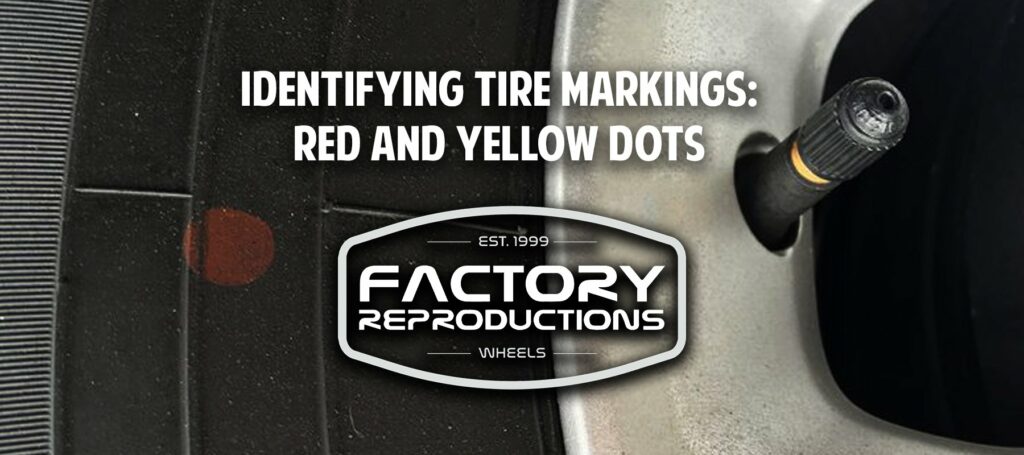As we were in the shop mounting a few tire and wheel packages this week, we thought it would be beneficial to explain a few markings that you may notice on the sidewall of your tires. Maybe you were cleaning your wheels or airing up your tires and had time to glance around to notice all of the letters, numbers, and dots on your tire. What do these tire markings mean? Are they important? Is something wrong with that tire?
While all tires are marked and stamped with obvious information regarding tire size, weight, and manufacturer info, other information is sometimes unclear to the average person. In this blog, we’ll explain one of the most commonly seen markings on tires that aren’t easily identified or understood, but play an important role in your safety and the ride quality of your vehicle.
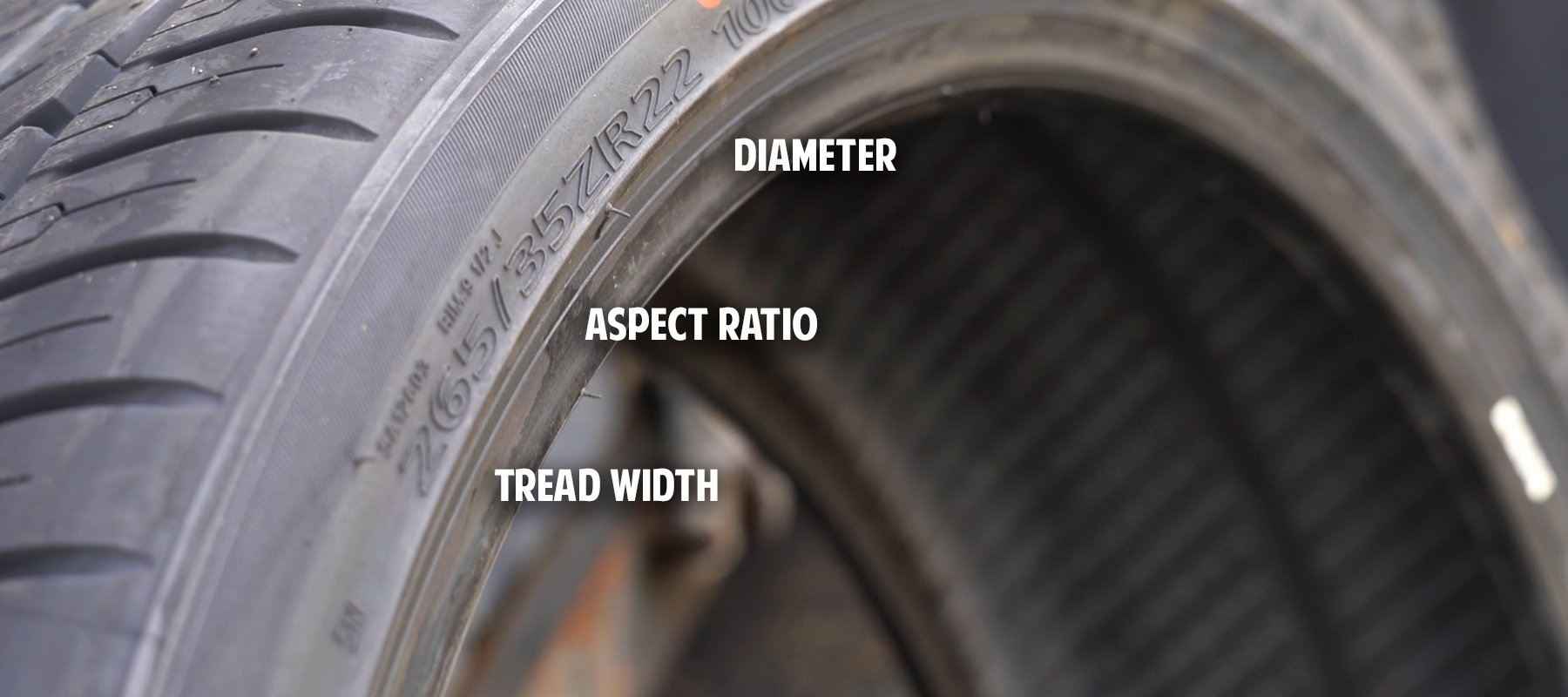
Imperfections and Irregularities
It’s an impossible task for tire manufacturers to produce a perfectly round and perfectly balanced tire. Because of this, slight imperfections and small irregularities are marked on the tires to ensure the tire is properly aligned and balanced when mounted onto a wheel. The way these imperfections and irregularities are marked is with two different colored dots, yellow and red.
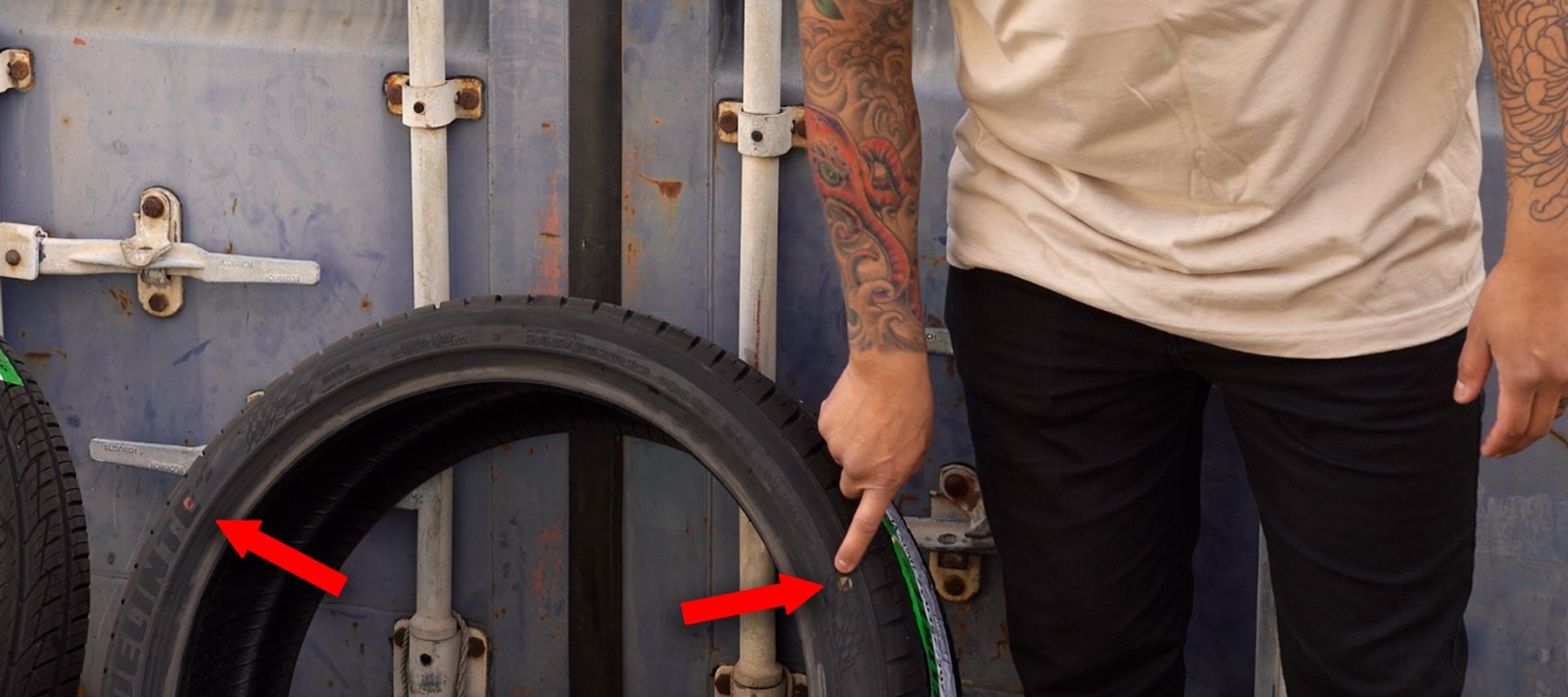
Yellow Dot Tire Markings
Yellow dots signify the lightest point on your tire or where the wheel weighs the least. The valve stem section of your wheels is the heaviest part, so placing the lightest part of the tire on the heaviest part of the wheel significantly reduces the amount of weight your wheel will need when it comes time to add weight and balance.
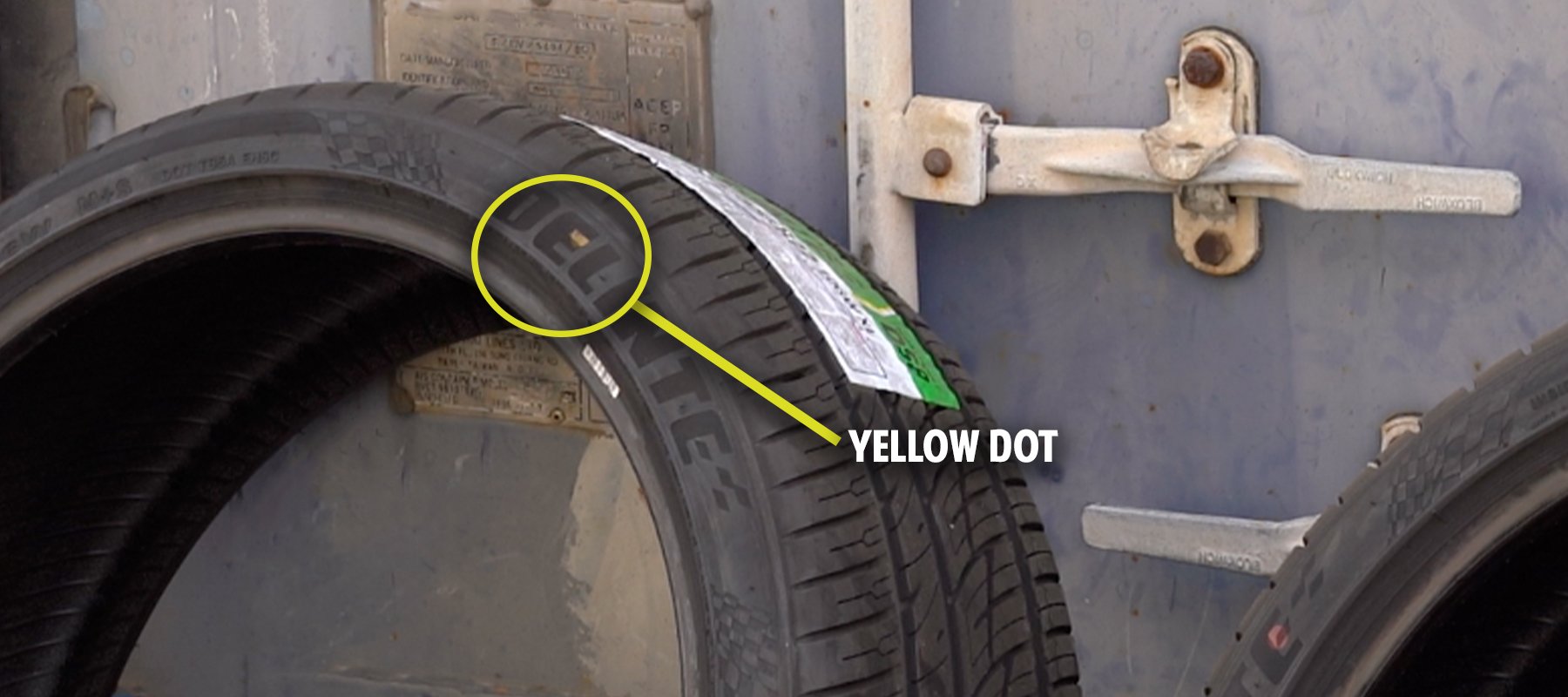
Red Dot Tire Markings
The Red dot signifies the flattest part or lowest point on your tires. The lowest point of the tire should always be adjacent to the highest part of the wheel which is usually indicated by some sort of marking on the wheel.
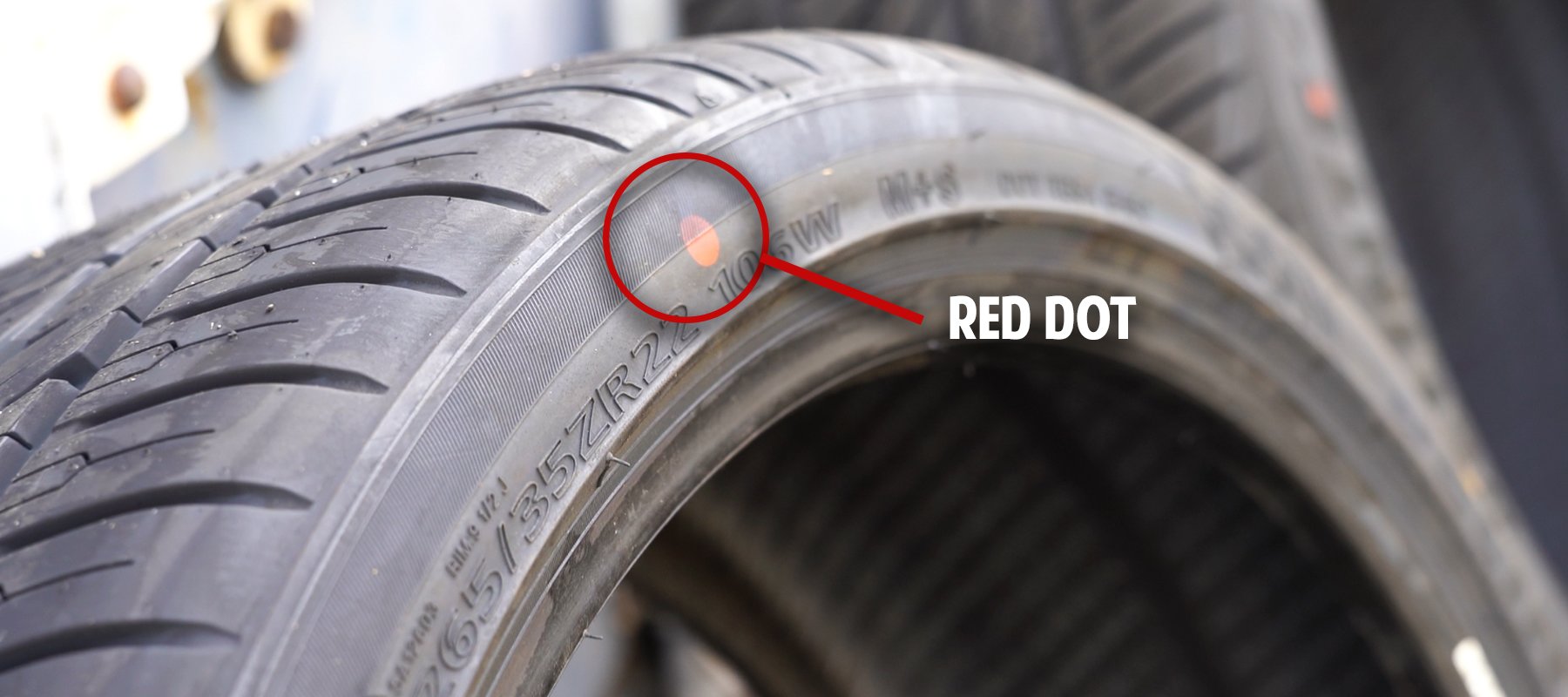
If there is only a yellow dot on your tire, you should line up the yellow dot with the valve stem of the wheel when mounting. If there are both red and yellow dots, the red dot should be lined up with the valve stem. The lowest point of the tire takes precedence over the lightest point of the tire in this case.
Proper Balancing
Properly aligning the red or yellow dots with the valve stem is important for several reasons. Most notably, the proper amount of weight added to your wheels will prevent your vehicle from experiencing that annoying rumble or shaky feeling when traveling at a higher rate of speed. If improperly balanced, your vehicle handling and stopping distance can be negatively affected. Unbalanced tires can also cause excessive wear and tear and uneven spots on your tires, making the vehicle unsafe for travel.
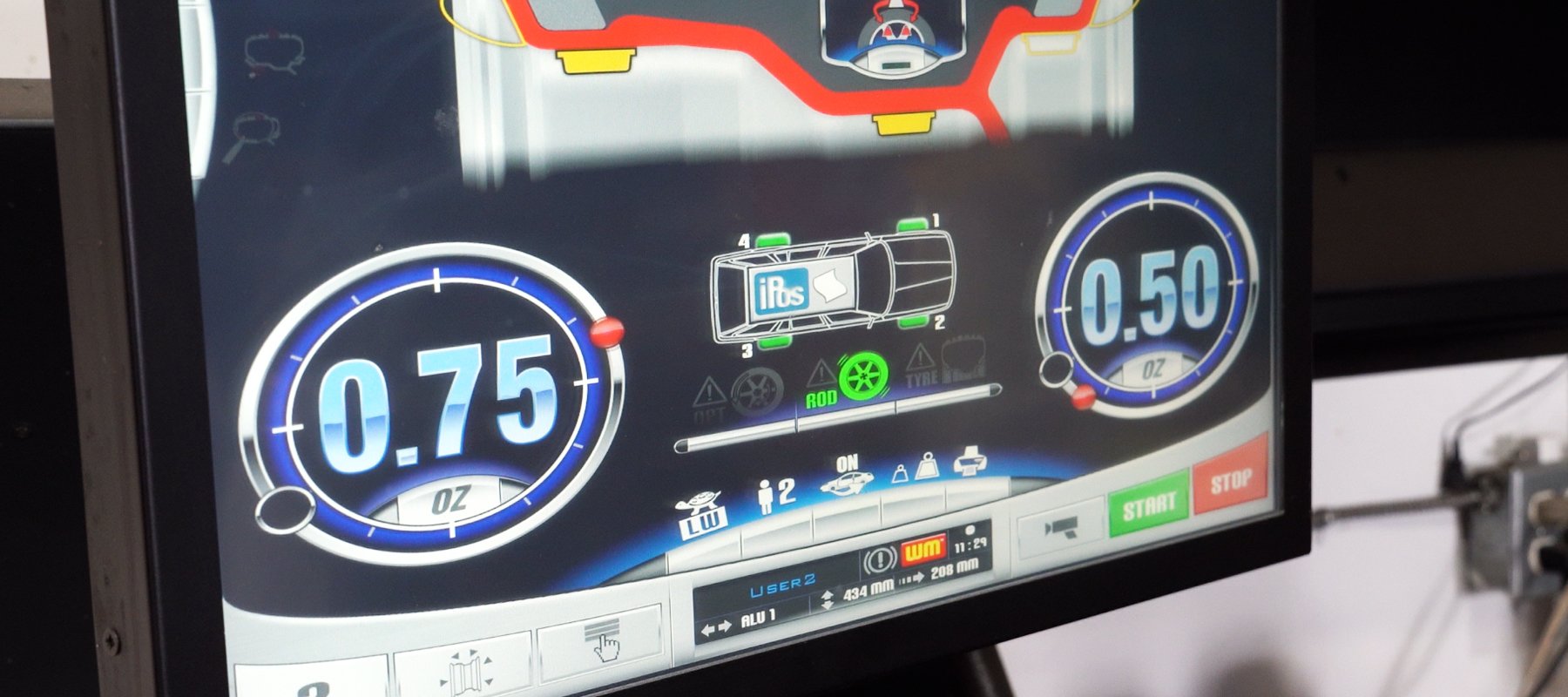
Preventative Maintenance
If you happen to notice a vibration at any point while driving after ensuring these markings are properly lined up, it could be that a wheel weight has fallen off or that your wheel may be bent or damaged. In any case, it’s a smart move to head over to your local tire shop and get your tires checked out. Getting your tires checked, rotated, and rebalanced may not only keep you safe while driving but save you money in the long run. The general rule of thumb is to have your tires rotated and checked as regularly as you get your oil changed.
We hope this information was helpful whether you’re new to the service industry or just a curious auto enthusiast eager to learn the little details about the markings you see on your tires.
